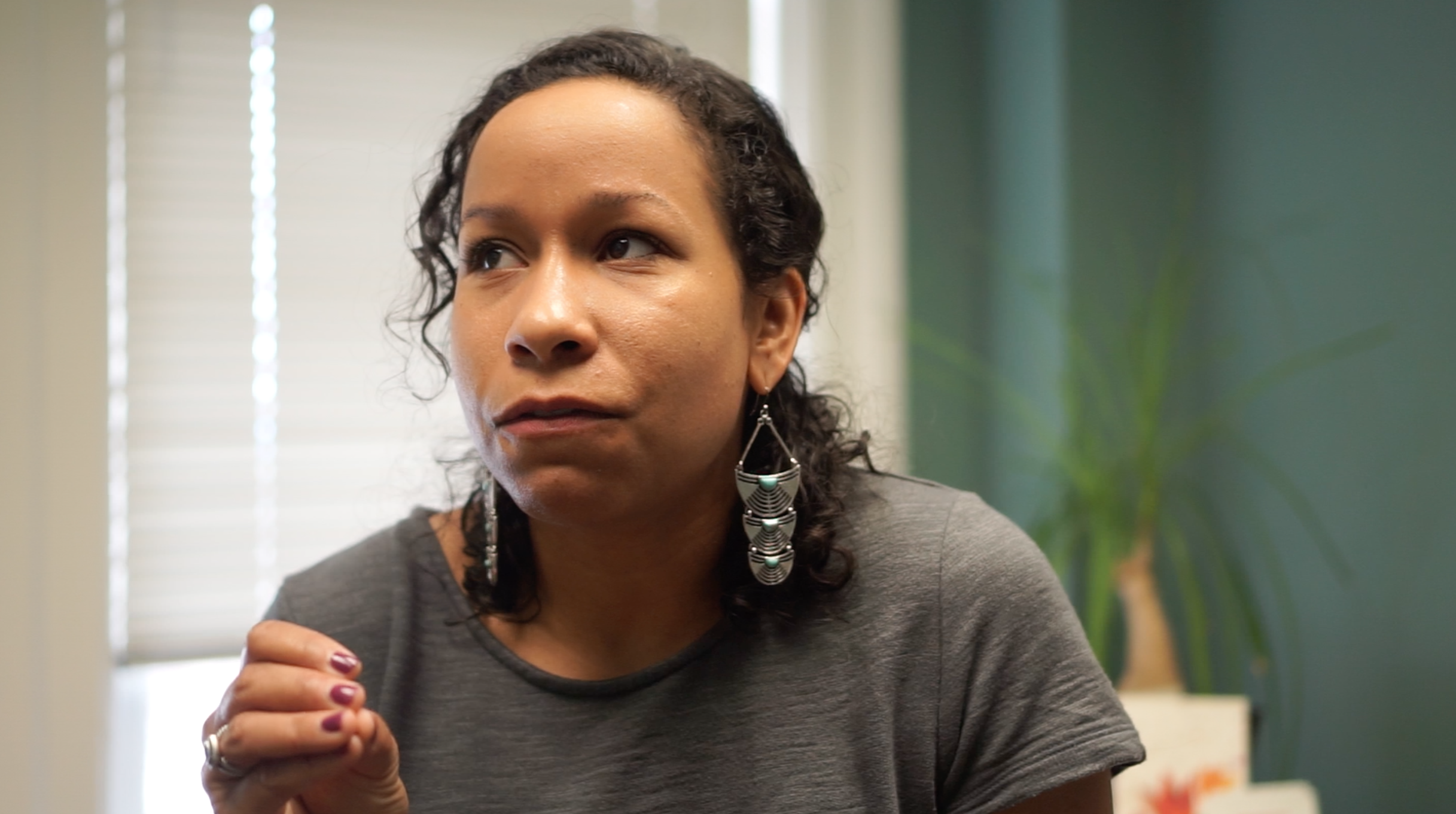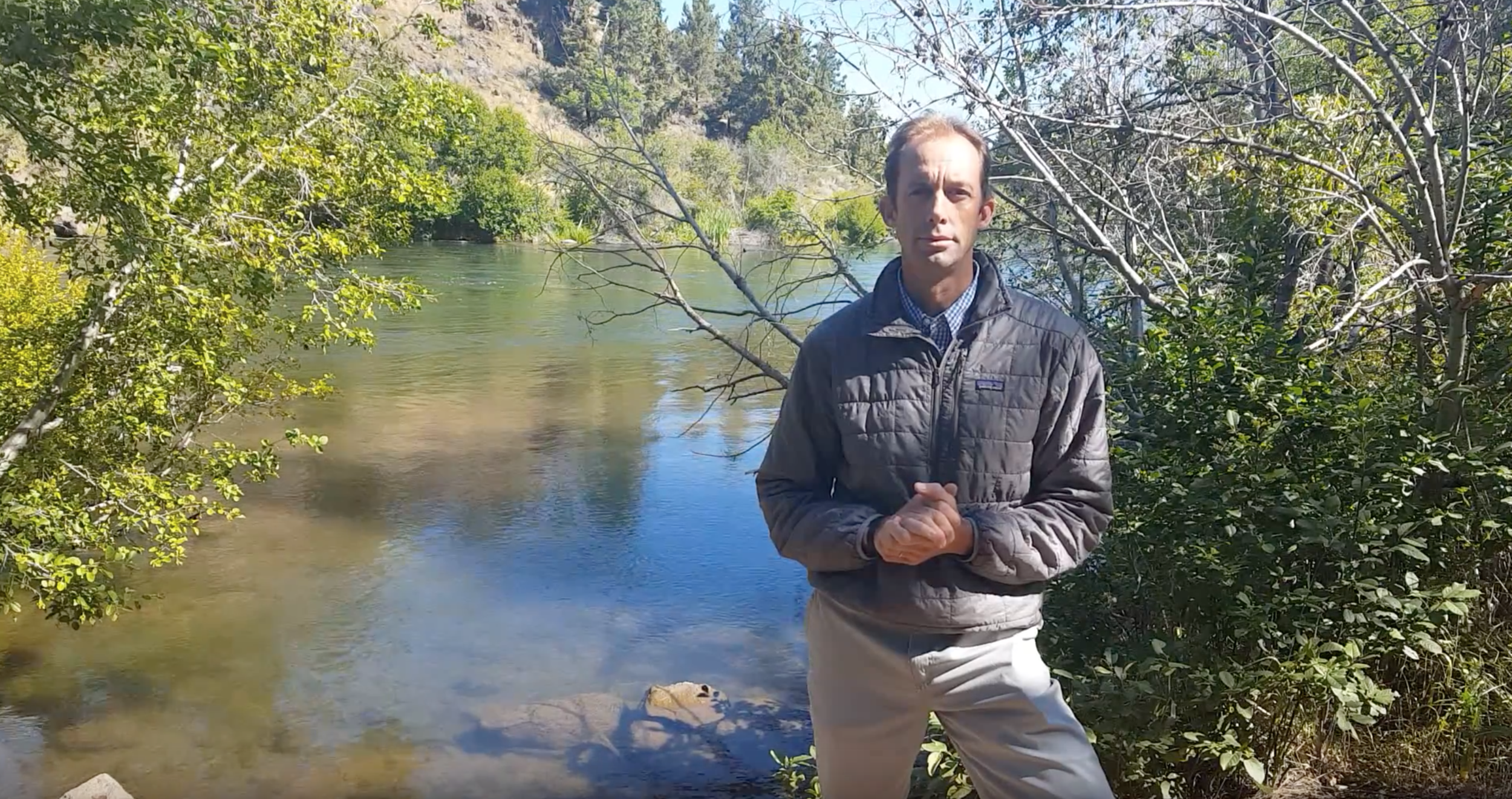Laurie McDowell

“For the kids that I taught, they often didn’t get out of the city at all. For the first time in their lives it wasn’t a park. It was the real world and they had an opportunity to learn about natural resources and why they’re important [and] why Oregon is as special as it is. ”
I’m a sixth-grade teacher. I taught for 20 years, so I was fortunate to be able to go at least 20 times. The experience that the kids have is just getting out there. For the kids that I taught, they often didn’t get out of the city at all. In fact, they were limited in the places that they could go and the things that they could do [in the city]. To get them out into the woods of Oregon was an amazing experience for them—and for me, to be able to watch that happen and watch that transformation of those kids. For the first time in their lives it wasn’t a park. It was the real world and they had an opportunity to learn about natural resources and why they’re important [and] why Oregon is as special as it is. They got to learn how to gauge whether or not an area was a healthy habitat for animals and fish and plants, and if the soil was good and all this kind of stuff.
And it was more than that. It was the community-building. When you’re at Outdoor School, everyone is on equal footing. Everyone is treated the same. Kids got to know students from other parts of the city that they never would have had a chance to get to know, or get to know on such a community-building level.
The food was fantastic and they got to have as much as they wanted and that was always a treat. You know, growing kids, sixth-graders! I never was disappointed in that aspect as well.
The kids learned to work together, so they would have certain duties. They would have to clean up or they would have to set up or they would have to carry things. They were all part of the camp and it just really hit home for them. It was wonderful. And they carried this experience with them when I would bring them back to school. The stories they would get to tell and the songs they would get to sing! And of course, I would have them write something when we got back, you know, kind of a reflection of what they learned. They would [write] pages. They couldn’t get enough out. It was an absolutely wonderful experience for them.
Now the other side of that is the high school kids. They had such an opportunity to work and grow with the kids. They did most of the hands-on teaching, but they also had a chance to be in leadership roles that they might not otherwise have had that opportunity. They would be responsible not only for their teaching aspect of it, but also they would be the Student Leaders in the cabins and so they had an opportunity to work with young children, you know, 11 or 12 years old, and keep them focused and keep them happy and keep them guided, and be role models for these kids, which they may not have ever had that experience or opportunity to do before. I know and I’ve heard from other teachers of what a growth that was when they got back to high school. What a marvelous experience it was for them as well.
And the adults that were out there were just so patient and so good and so positive with my kids, and that certainly made a difference. These folks were there every step of the way. If my kids were having challenges, they were there to guide them through it. If my kids were hurt—that hardly ever happened, almost never happened—but the nurse was there 24/7. Every human being that was out there was treated with dignity. It was an amazing experience.
For me personally, I ended up going in the springtime. I taught life science and so we would build up to this point and then suddenly they realized why we’re doing this, you know? All this book learning, all the stuff that I could do in the classroom, suddenly became alive and real for them.
I had one student one year who was very challenging in the classroom, bless his heart. I mean I loved him dearly, but he was challenging. I took him aside after one of the field studies to just check in, “How’s your day going and how’s your week going?” And he said, “Mrs. McDowell, no one’s ever told me that this was here. How come I didn’t know this was here before?”
And it just it changed his life, you know?
We collect these soil samples and I have kids that up until I retired and even beyond that, would say, “I still have that soil sample, Mrs. McDowell.”
I was fond of gathering tracks. I’d bring out plaster of Paris and I have a lot of tracks that I collected over the years. In fact, I have bear tracks, which was kind of fun. I would be able to share those with the kids and so, of course, they were always on the lookout for tracks with the more intense, more purposeful observation of what was going on around them.
You can come to a park and it’s beautiful, but this is nature out there, and they understood why it’s worth keeping. Oregon and the Pacific Northwest is such a unique place on this planet. If we don’t have future generations understand how important this is and experience it, then I think it’ll be easier to have apathy. It’ll be easier for them to say, “Oh, you know, it doesn’t affect me. I live in the city. It doesn’t really matter, you know? Go ahead and cut down all those trees. Go ahead and wipe out those habitats. It doesn’t affect me.”
Well, it does. I does affect them. I’m big on salmon habitat and if they can’t live [in the water] we can’t live [on land], you know? So it’s really important those people who are saying, “Oh it’s nostalgia. It’s just fluffy stuff.”
It’s not. Being a science teacher, I know you can’t repeat in a classroom what they can do hands-on out in the field.





